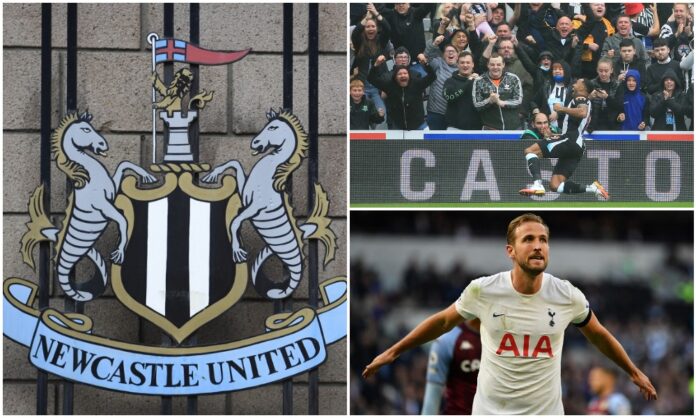DUBAI: Anticipation is building ahead of Newcastle United’s first game under the ownership of Saudi Arabia’s Public Investment Fund this weekend, and not just among fans of the club and of their opponents, Tottenham Hotspur.
The match will also be intensely scrutinized by the rest of the English Premier League clubs to assess the initial effects on the famous old club of its takeover by the Saudi-led consortium last week, and for any signs of a new approach.
Interest will be keenest among the Premier League’s so-called Big Six clubs: Arsenal, Chelsea, Liverpool, Manchester City, Manchester United and Tottenham (in alphabetical order). They are the ones with most at stake in maintaining the status quo that the new-look Newcastle is determined to challenge.
The protracted nature of the negotiations that led to the club’s eventual sale by former owner Michael Ashley to the PIF-led consortium — which also includes financial entrepreneur Amanda Staveley and the billionaire Reubens Brothers — has already demonstrated the anxiety the Big Six feel at the prospect of their informal control of the EPL being diluted.
They made their opposition to the Saudi-led takeover obvious in a series of behind-the-scenes briefings and lobbying of the football authorities, which was one of the reasons the EPL was able to stall for so long on final approval for the deal.
Even since the deal finally went through, there have been rumblings in the English media that the rest of the league — led by the Big Six — are still unhappy about it and are looking for ways to obstruct the benefits that will inevitably flow to Newcastle and their long-suffering fans.
Tottenham — Newcastle’s opponents on Sunday — are reported to be the most aggrieved at the idea that Newcastle will have the resources to be able to compete with them and the rest of the Big Six. (Full disclosure: I am a lifelong Tottenham fan.)
A look at the ownership structure of the Big Six tells us a lot about their reasons for apprehension at the Newcastle deal.
Two of them — Chelsea and Manchester City — are owned by wealthy foreign entities in the shape of Russian businessman Roman Abramovich and the government of the UAE respectively. For them, money would appear to be no object, and both have already spent hundreds of millions of dollars to achieve the success they have enjoyed in domestic and European football in recent years.
The next grouping — Arsenal, Liverpool and Manchester United — are owned or controlled by American businessmen with one eye firmly on the bottom line. You get the feeling that the Kronke organisation, the Fenway Sports Group and the Glazier family (respective owners of the three) are as happy with big profits and dividends as they are with trophies.
Tottenham’s ownership falls between the two models. Multi-billionaire Joe Lewis (estimated net worth around $6 billion) is the ultimate owner, which would appear to give Tottenham plenty of resources to challenge the others.
But because of the profit-oriented philosophy of both Lewis and his protege Daniel Levy, the club chairman, Tottenham’s only major trophy this millennium remains the relatively insignificant League Cup.
Of the Big Six, Tottenham and Arsenal have most reason to fear the entry of a super-charged Newcastle into the pack, adding to the rivalry in the EPL and for the limited places in lucrative European competition. Both have struggled to get into the money-spinning continental cups in recent years.
So while the game at St James’ Park on Sunday will be a simple football match involving 22 players on the pitch, it will also be a test of rival financial structures in the football world.
It is probably too early to judge what effect the Saudi injection will have on Newcastle’s business model. The new owners have a lot of work to do to identify specific investment requirements.
On the other hand, a new owner is likely to electrify the Newcastle crowd and incentivize the players to go all out, something they have been accused of not doing during the Ashley years.
Whatever the result, may the best business model win.

